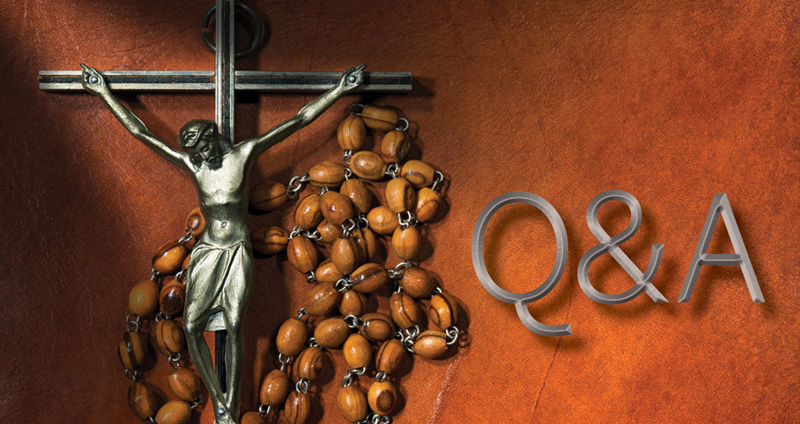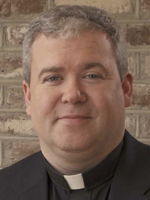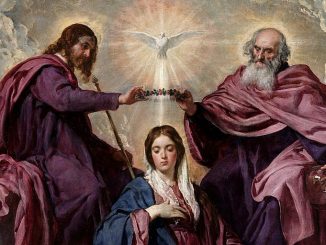
Q: If it takes good works to get into heaven, then aren’t we saving ourselves? (Summerville, SC)
A: If we did good works on our own accord, then we would be trying to save ourselves. However, such an effort would be fruitless since we do not have such a power. In illustrating this point, the Bible calls such good deeds “filthy rags” (cf. Is 64:6).
This approach, however, is not what the Church teaches in terms of good deeds. When the Catholic Christian performs good deeds, born of faith, she does so “in Christ.” The preposition “in” is very important here since it clearly illustrates that when a Christian does a good deed, she does so in communion with Jesus Christ. Only in Christ are our good actions “acceptable to God, the Almighty Father,” as we pray in the Mass. And so, when we do good, our behavior contributes to “the working out of our salvation” (cf. Phil. 2:12).
Q: How do I explain how Catholics view Our Lady to my non-Catholic Christian friends? (Kure Beach, NC)
A: In talking with other Christians about aspects of Catholic belief, I always try to understand how they see things. By doing this, we can have a better idea of where to begin the conversation.
For most non-Catholic Christians, the great concern over Mary pertains to idolatry. There is a fear that by honoring Mary, we are taking away from Jesus Christ. Incidentally, if revering Mary was idolatry, then our Christian friends would be right in their objections. We denounce idolatry as any Christian would.
The honor we give to Mary, however, is not idolatry. In reverencing Mary, we are led to greater adoration and worship of God. We see this in the Bible. When Elizabeth praises Mary (Lk 1:43), she does not horde the praise or seek her own glory, rather she immediately turns to God and announces: “My soul proclaims the greatness of the Lord …” (Lk 1:46). Mary directs Elizabeth to God. This shows us the biblical truth that Mary can lead us to greater intimacy with her divine Son.
Mary never seeks to eclipse or take the place of her divine Son. She would be the first to object any hint at idolatry. Again, we see this truth in the Bible. As the Lord worked his first miracle in Cana at the encouragement of his Mother, she told the servants there: “Do whatever Jesus tells you” (cf. Jn 2:5). These are her last recorded words in the Gospels and they stand as a perpetual instruction to all Christians through the ages.
By taking the idolatry card off the table, we can begin to address other very human aspects of Mary’s role in our life and discipleship. For example, she was given to us as a Mother by Jesus Christ. This gift of spiritual motherhood was one of his last gifts to us as he died on the Cross (cf. Jn 19:27). As our Mother, she guides, nurtures, gently corrects, consoles, and teaches us how we are to love and serve her divine Son. Mary always points us to Jesus.
These are a few initial thoughts that might help you to begin a conversation with non-Catholic Christians.
Father Jeffrey Kirby is administrator of St. Joseph Church in Chester and Our Lady of Grace Church in Lancaster. Email him your questions at askfrkirby@gmail.com.



